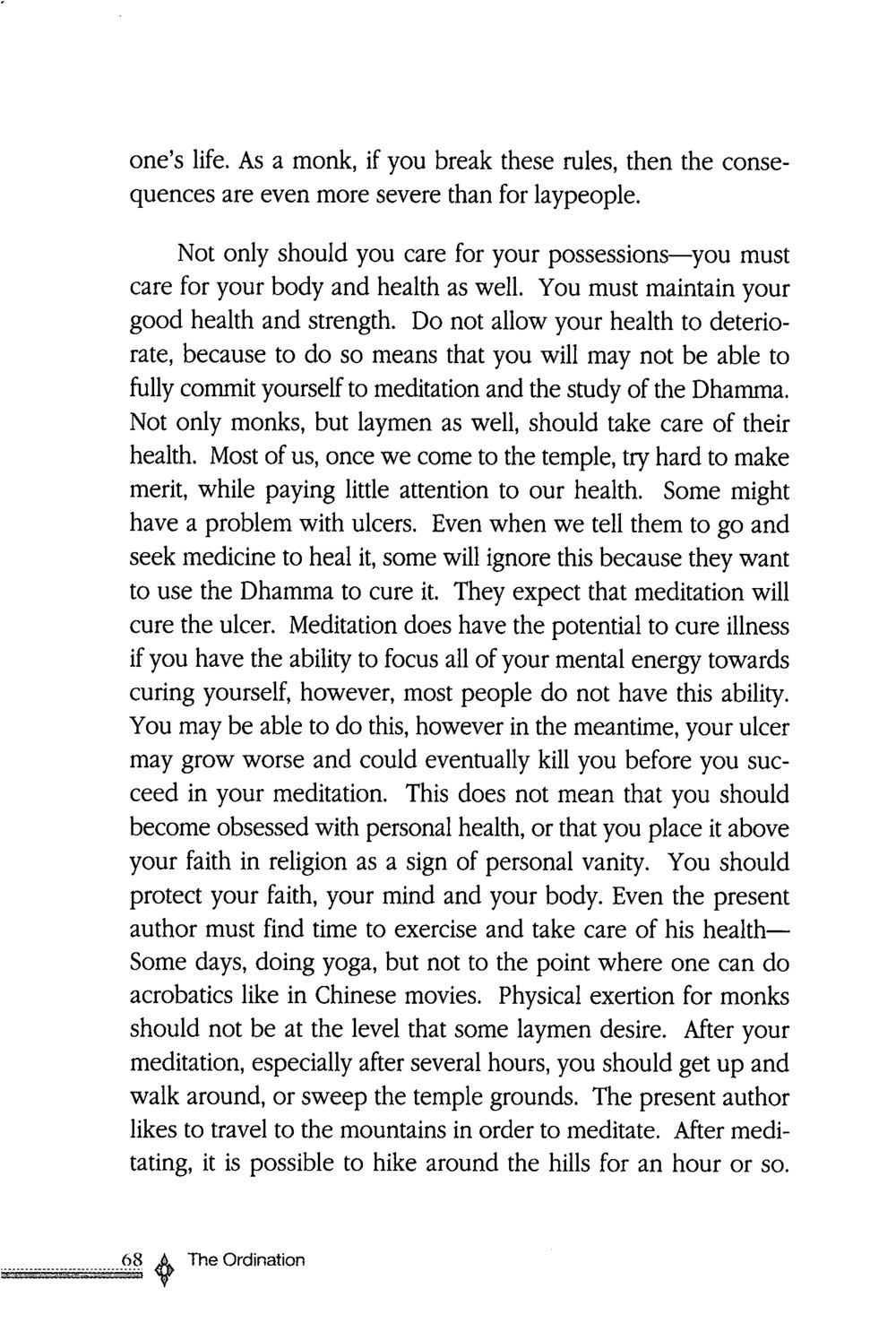Caring for Health as a Monk and Layperson : หน้า 69/105
The ordination : หน้า 69/105 Importance of health care for monks and laypeople, balancing meditation and physical well-being.
1 ครั้ง

สรุปเนื้อหา
การดูแลสุขภาพและร่างกายเป็นสิ่งสำคัญสำหรับพระและฆราวาส หากสุขภาพย่ำแย่ จะส่งผลกระทบต่อการทำสมาธิและการศึกษาธรรมะ การละเลยสุขภาพอาจทำให้ปัญหาทางกายเกิดขึ้น เช่น แผลในกระเพาะอาหาร การใช้สมาธิในการรักษาต้องอาศัยทักษะและความสามารถของแต่ละบุคคล. บทธรรมนี้เน้นว่าความสำคัญของร่างกายไม่ควรถูกมองข้าม ตามที่ผู้เขียนให้ความสำคัญกับการออกกำลังกายและการทำสมาธิในธรรมชาติ เช่น การเดินในเขา และการทำโยคะเมื่อเป็นไปได้.
หัวข้อประเด็น
-การดูแลสุขภาพของพระ
-ความสำคัญของการทำสมาธิ
-บรรทัดฐานทางสุขภาพสำหรับฆราวาส
-การเดินทางเพื่อการทำสมาธิ
-การรักษาโรคด้วยสมาธิ
ข้อความต้นฉบับในหน้า
one’s life. As a monk, if you break these rules, then the consequences are even more severe than for laypeople.
Not only should you care for your possessions—you must care for your body and health as well. You must maintain your good health and strength. Do not allow your health to deteriorate, because to do so means that you will may not be able to fully commit yourself to meditation and the study of the Dhamma. Not only monks, but laymen as well, should take care of their health. Most of us, once we come to the temple, try hard to make merit, while paying little attention to our health. Some might have a problem with ulcers. Even when we tell them to go and seek medicine to heal it, some will ignore this because they want to use the Dhamma to cure it. They expect that meditation will cure the ulcer. Meditation does have the potential to cure illness if you have the ability to focus all of your mental energy towards curing yourself, however, most people do not have this ability. You may be able to do this, however in the meantime, your ulcer may grow worse and could eventually kill you before you succeed in your meditation. This does not mean that you should become obsessed with personal health, or that you place it above your faith in religion as a sign of personal vanity. You should protect your faith, your mind and your body. Even the present author must find time to exercise and take care of his health—Some days, doing yoga, but not to the point where one can do acrobatics like in Chinese movies. Physical exertion for monks should not be at the level that some laymen desire. After your meditation, especially after several hours, you should get up and walk around, or sweep the temple grounds. The present author likes to travel to the mountains in order to meditate. After meditating, it is possible to hike around the hills for an hour or so.
หน้าหนังสือทั้งหมด
หนังสือที่เกี่ยวข้อง
Load More









































































































